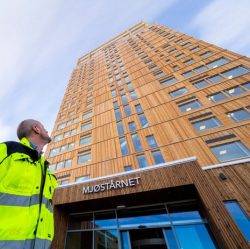To provide the best experiences, we use technologies like cookies to store and/or access device information. Consenting to these technologies will allow us to process data such as browsing behaviour or unique IDs on this site. Not consenting or withdrawing consent, may adversely affect certain features and functions.
The technical storage or access is strictly necessary for the legitimate purpose of enabling the use of a specific service explicitly requested by the subscriber or user, or for the sole purpose of carrying out the transmission of a communication over an electronic communications network.
The technical storage or access is necessary for the legitimate purpose of storing preferences that are not requested by the subscriber or user.
The technical storage or access that is used exclusively for statistical purposes.
The technical storage or access that is used exclusively for anonymous statistical purposes. Without a subpoena, voluntary compliance on the part of your Internet Service Provider, or additional records from a third party, information stored or retrieved for this purpose alone cannot usually be used to identify you.
The technical storage or access is required to create user profiles to send advertising, or to track the user on a website or across several websites for similar marketing purposes.
 As the consequences of climate change, social tensions and high levels of inequality are increasingly evident, the Bennett Institute for Public Policy at the University of Cambridge, led by Professor Diane Coyle, has published its initial report on how to improve economic measurement by replacing GDP as the standard measure for national prosperity with others that include wellbeing and social and environmental capital. (more…)
As the consequences of climate change, social tensions and high levels of inequality are increasingly evident, the Bennett Institute for Public Policy at the University of Cambridge, led by Professor Diane Coyle, has published its initial report on how to improve economic measurement by replacing GDP as the standard measure for national prosperity with others that include wellbeing and social and environmental capital. (more…)






















 UK-based
UK-based 












August 16, 2019
Is London Smart City Initiative as smart as it could be?
by George Adams • Cities, Comment, Technology